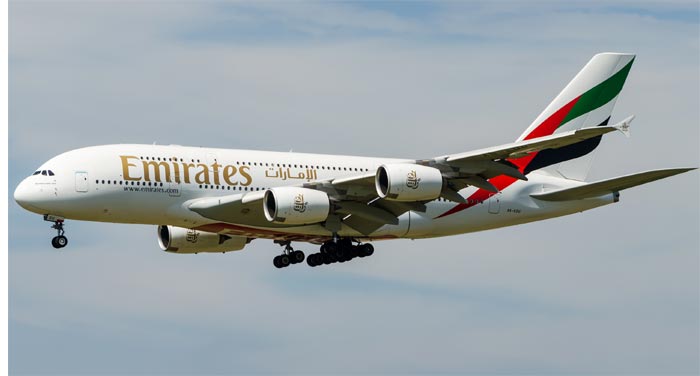Reuters/Dubai
Dubai's flagship airline Emirates posted a 65% surge in first-half net profit on Thursday after its decision not to hedge against changes in fuel costs paid off when oil prices plunged.
The world's fourth-largest carrier of international passengers posted a profit of 3.1bn dirhams ($844mn) for the six months ending September 30, it said in a statement, up from 1.9bn dirhams a year earlier.
Emirates said fuel costs dropped to 28% of operating costs from 38% as fuel prices fell 41% year on year. Some savings were passed on to customers.
"We made a calculated decision not to hedge our fuel purchases, which paid off as fuel prices continued to soften," Emirates Chairman Sheikh Ahmed bin Saeed al-Maktoum said.
Airlines use fuel hedging contracts to reduce exposure to potential rises in fuel costs. Without hedging, airlines are exposed to fuel cost fluctuations but can benefit almost immediately if prices fall.
The number of passengers carried by Emirates rose 10% to 25.7mn in the period, while capacity climbed 14% as the airline expanded its fleet with nine new planes.
Emirates, already the biggest user of the Airbus A380 superjumbo and the Boeing 777, has about 345 of the two aircraft types, and variants on order.
The lower fuel costs and increase in passengers offset pressures from foreign exchange moves as a stronger dollar hurt revenue, which fell 4% to 42.3bn dirhams.
"The currency exchange situation, combined with ongoing regional conflict and weak economic outlook in many parts of the world, dampened the positive impact of lower fuel prices," Sheikh Ahmed said.
Emirates said profit for the wider group, which includes airline services arm Dnata, rose to 3.7bn dirhams from 2.2bn dirhams a year ago.

